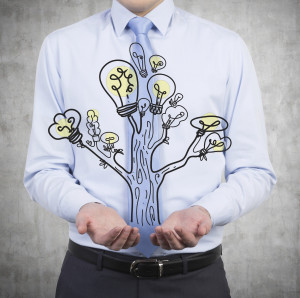You Can’t Learn and Grow Without This
“Invest in as much of yourself as you can. You are your own biggest asset by far.”
Renowned business magnate and investor Warren Buffet has said that the best investment he ever made was in himself. (He often points to the Dale Carnegie Training course he took to improve his public speaking and relationship skills.)
If he’s right, then why do we invest so little in ourselves?
Many people admit to me, when I tell them I offer professional training, that they have developed a cynical attitude toward training and feel that training doesn’t work or doesn’t last. After a lifetime of exposure to adult training programs (between us, my dad, grandfather and I have trained Dale Carnegie courses since the early 1960s), I’ve concluded that if you think training works or if you think it doesn’t, you’re probably right.
As the Buddhist saying goes, “When the student is ready, the teacher will appear.”
What makes a student ready?

Last Sunday, while walking with our family, I ran into a leader at a local company. Jason and I knew one another because he had been a participant in a training program I conducted several years earlier. He might have been my favorite training participant I’ve been fortunate to train over the years. If you want to follow Buffet’s advice to make the investment in yourself, Jason’s example offers a pathway to getting a solid return.
Here are four characteristics Jason exhibited as a student ready to learn:
- Self-awareness. Jason had the courage to see himself the way that others saw him. He was neither self-deprecating nor self-aggrandizing; he was truthful. He knew that he possessed special gifts that few people had (as we all do). And he knew with equal assurance that he often overused his gifts and allowed his human limitations and lack of experiences to bring deficiencies to the surface. It was just as easy for him to say, “I’m good at that,” as it was to say, “I’m awful in that area.”
- Confidence. His truthfulness, rather than inflated ego or deflating self-loathing, assured him that he was capable of growth. Our capacity for improvement is inversely correlated with our capacity for self-cynicism. When we think we can, we probably can. When we think we can’t, we probably won’t.
- Coachability. Taking coaching from someone may vary in difficulty based on our culture or personality style. For me, it’s always been painful to say, “I appreciate your feedback. I will take it seriously and work to improve.” Most of our culture is relentlessly individualistic and pluralistic, meaning we each have our own way, thank you very much. While this type of self-discovery can bring freedom, so can submission to a perspective outside our own.
- Gratitude. Jason continues to thank me for that training course I facilitated years ago. It’s nothing dramatic—just a simple and occasional nod to the value of participating in the course. And because he remembers the value, it helps sustain the growth and creates a halo effect on future learning opportunities. He’s not cynical; he’s grateful, and that yields an exponential return on his investment.
How much are you willing to invest in your own future potential?
Your learning starts with you. If you want to grow, get ready.









Comments are closed here.